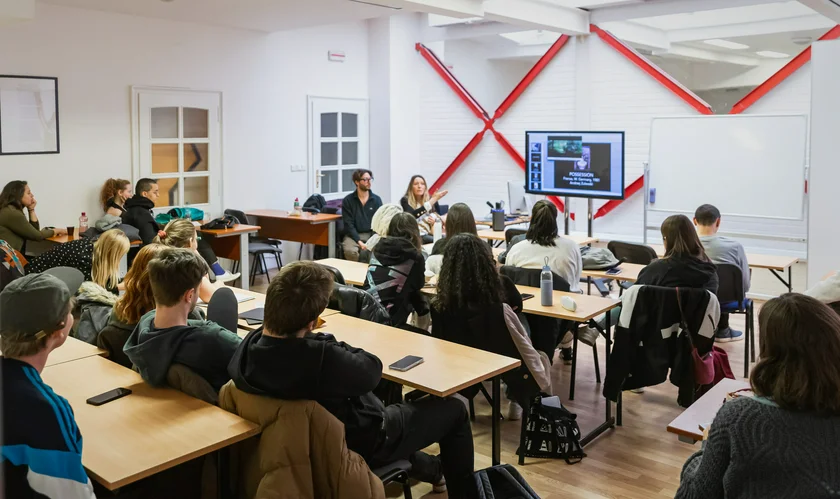Since Russia launched a large-scale invasion of Ukraine in February, universities around the world are responding to the humanitarian catastrophe by doing what they do best: offering a safe space for students and academics and an opportunity to complete studies or continue their careers.
Prague City University (PCU), which has three physical campuses in the Czech capital, is doing its part by offering 25 full student scholarships as well as opening fellowships to Ukrainian researchers and educators.
PCU is opening its doors to students affected by the war
Prague City University’s 25 full scholarships for Ukrainians are available for those with the new temporary protection offered by the Czech government (a special long-term visa issued due to the war).
According to Larissa Petryca, Marketing Manager at Prague City University, scholarships are offered across all their programs, but since studies are in English, all students are required to have at least a B2 level of English to apply.
“The scholarships are to help motivated students start their studies, or if appropriate, continue their studies from where they left off in Ukraine,” Petryca says.
“We have a dedicated team of admissions specialists working with Ukrainian applicants and appreciate that every individual student's situation is different, so we are working with students to understand where they are in their educational journey, what documentation they have, and if we can offer a program that matches their needs,” she notes.
If the school feels they can help, the student can then apply for the program of their choice and meet with the Program Leader to ensure that they are admitted to the right level of study. “If successful, the scholarship will be awarded on the understanding that the student has or will get temporary protection,” she adds.
Applications are open now and will be considered for September 2022 entry. The school is hoping to have all scholarships allocated by the end of June.
Petryca says PCU is aware that there will be many more applications than places available and they’ll do their best to help point prospective students in the right direction to find other options.
Fellowships are also available
While many universities are opening their doors to students, Prague City University is going a step further by offering several teaching and research fellowships for Ukrainian academics for up to one year, with the possibility of that leading to long-term academic employment.
“In particular, the School of Business is expanding and is the place we would most readily be able to accommodate academics on a long-term or permanent basis,” Petryca says.
There is no cap on the number of fellowships offered because, as Petryca explains, the criteria will be harder to fill. “It will depend upon the specialization that the academic works in as well as his or her English proficiency,” she adds.
Prague City University will offer support for Ukrainian academics in a number of ways. A fellowship could simply be offering space at one of the university campuses for research purposes that allows for networking with fellow academics and students in a university environment, according to Petryca.
“It could also be simply the offer of a quiet space to work and technical support for a period of time allowing lecturers to continue meeting with their Ukrainian students online; on the other hand, it could also lead to employment as a lecturer,” she says. “It is really going to be on a case-by-case basis.”
Ultimately, Petryca explains, the university is looking to employ long-term talented part-time and full-time lecturers for its programs.
Although the school is opening its doors to both students and academics, they’re not necessarily expected to work together. They are instead expected to integrate, collaborate and work alongside faculty who have origins from all over the world.
“PCU degrees are all taught in English so both academics and students will need to have good English to qualify,” she explains. “We already had many Ukrainian students studying with us prior to the war, all of whom had sufficient English to study the programs.”
Prague City University offers Bachelor’s and Master’s degrees in areas such as Art, Design, Media & IT, International Management, Finance & Accounting, and Education.
PCU’s School of Business also cooperates closely with the Teesside University International Business School, their key strategic partner university in the UK, on doctoral and postdoctoral research activities. Education programs are directly accredited by the Ministry of Education, Youth, and Sports of the Czech Republic.
In addition, research activities are led by the school’s Center for Research and Interdisciplinary Studies, as well as research departments in each school.
This article was written in cooperation with the Prague City University. Read more about our sponsored content policy here.












 Reading time: 3 minutes
Reading time: 3 minutes 





















